Resources
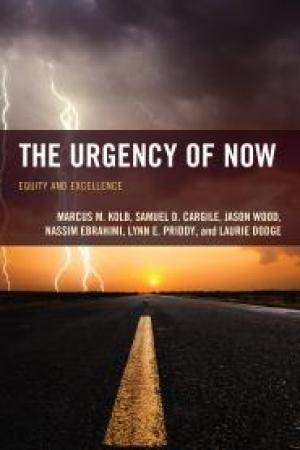
Click Here for Book Review Abstract: With the student body evolving quickly, and the looming challenge of the “completion agenda,” community colleges are facing circumstances like never before in serving all students and propelling them to fulfilling their education aspirations. The Urgency of Now suggests a way forward, with students and their learning at the center of what community colleges, and all of higher education, must do to generate graduates in possession of high quality degrees and credentials. Through considering comprehensive assessment, new roles for accreditation, faculty engagement strategies, and competency-based education, The Urgency of Now describes our current challenges and the ways we might meet those challenges for the 21st century institution. (From the Publisher)
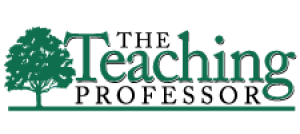
Journal Issue.
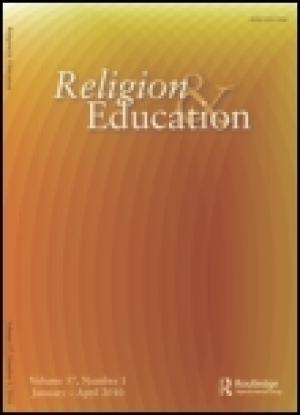
Journal Issue.

Click Here for Book Review Abstract: Higher educations professionals face a myriad of competing demands on their time. Many of these pressures exist apart from teaching and outside the classroom altogether. Career requirements can seem to be never ending, and if they are not carefully managed and balanced, they can overrun even the most committed scholar’s resolve. The latest book in Atwood’s 147 Tips series, 147 Practical Tips for Emerging Scholars presents readers with a much-needed guide to the varied ins and outs of a career in higher education. Advocating detailed planning and clear priorities, the authors have crafted a thorough and accessible book to simplify and de-stress the navigation of a scholar’s world. Their pragmatic and detailed tips offer advice on crucial topics including: - Writing grants - Research - Working with technology - Collaboration - Mentoring The authors write: 147 Practical Tips for Emerging Scholars assists you in developing your successful professional journey as a scholar by delivering proven and succinct guidance.... You can use this book as a ready reference that you can turn to again and again for solid direction, clarity, and encouragement. This essential volume offers fresh and enriching insights, and will prove an indispensable tool for higher education professionals - new and veteran alike. (From the Publisher)
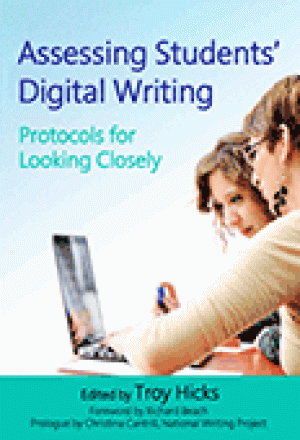
Click Here for Book Review Abstract: In this book, Troy Hicks - a leader in the teaching of digital writing - collaborates with seven National Writing Project teacher consultants to provide a protocol for assessing students’ digital writing. This collection highlights six case studies centered on evidence the authors have uncovered through teacher inquiry and structured conversations about students’ digital writing. Beginning with a digital writing sample, each teacher offers an analysis of a student’s work and a reflection on how collaborative assessment affected his or her teaching. Because the authors include teachers from kindergarten to college, this book provides opportunities for vertical discussions of digital writing development, as well as grade-level conversations about high-quality digital writing. The collection also includes an introduction and conclusion, written by Hicks, that provides context for the inquiry group’s work and recommendations for assessment of digital writing. Book Features: An adaptation of the Collaborative Assessment Conference protocol to help professional learning communities examine students’ digital work. Detailed descriptions of students’ digital writing, including the assessment process and implications for instruction. Links to the samples of student digital writing available online for further review and to be used as digital mentor texts. (From the Publisher)
Contemplative Studies—meaning both standard “third-person” study of contemplative traditions in history and various cultures as well as actual “first-person” practice of contemplative exercises as part of coursework—is a new field in academia, and aspects have been controversial in some quarters, seen as not completely compatible with the rigorous “critical inquiry” of liberal arts study. While there are agendas within contemplative studies (CS) that go beyond the traditional questions and issues of liberal education, I want to argue that CS has, for a number of reasons, a place right at the heart of such inquiry. CS can be approached from many disciplines, including psychology, medicine, and neuroscience, as well as literature and visual, fine, and performing arts, but here I will focus on its place in liberal arts generally, and in religious studies specifically.
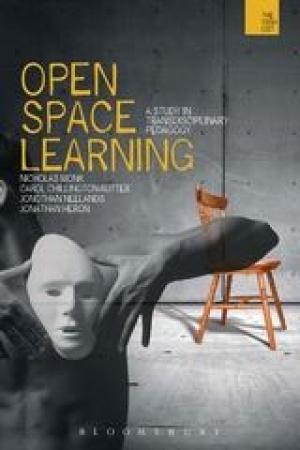
Click Here for Book Review> Abstract: Open-space Learning offers a unique resource to educators wishing to develop a workshop model of teaching and learning. The authors propose an embodied, performative mode of learning that challenges the primacy of the lecture and seminar model in higher education. Drawing on the expertise of the CAPITAL Centre (Creativity and Performance in Teaching and Learning) at the University of Warwick, they show how pedagogic techniques developed from the theatrical rehearsal room may be applied effectively across a wide range of disciplines. The book offers rich case-study materials, supplemented by video and documentary resources, available to readers electronically. These practical elements are supplemented by a discursive strand, which draws on the methods of thinkers such as Freire, Vygotsky and Kolb, to develop a formal theory around the notion of Open-space Learning. (From the Publisher)
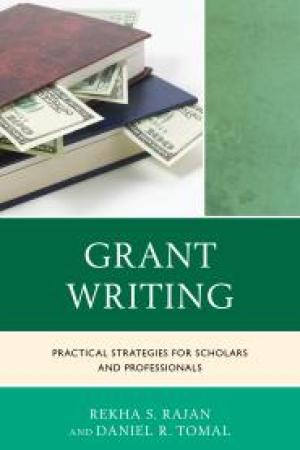
A first of its kind, this book provides you everything you need to know about successfully navigating the grant writing process including understanding the language of grant writing, finding grants, preparing the proposal, completing the application, preparing budgets, organizing information and timelines, revising and editing the proposal, including the assessment and evaluation, and building meaningful relationships with program officers and colleagues. (From the Publisher)
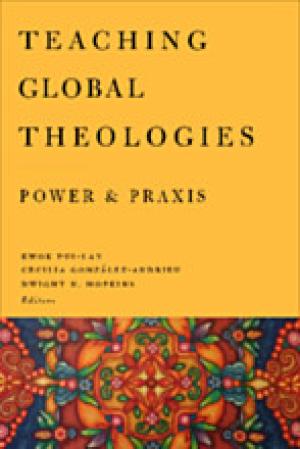
Click Here for Book Review Abstract: Theological education, like theology itself, is becoming a truly a global enterprise. As such, theological education has to form, teach, and train leaders of faith communities prepared to lead in a transnational world. The teaching of theology with a global awareness has to wrestle with the nature and scope of the theological curriculum, teaching methods, and the context of learning. Teaching Global Theologies directly addresses both method and content by identifying local resources, successful pedagogies of inclusion, and best practices for teaching theology in a global context. The contributors to Teaching Global Theologies are Catholic, mainline Protestant, and evangelical scholars from different racial and ethnic backgrounds, each with sustained connections with other parts of the world. Teaching Global Theologies capitalizes on this diversity to uncover neglected sources for a global theology even as it does so in constructive conversation with the long tradition of Christian thought. Bringing missing voices and neglected theological sources into conversation with the historical tradition enriches that tradition even as it uncovers questions of power, race, ethnicity, class, gender, and sexuality. Teachers are offered successful pedagogies for bringing these questions into the classroom and best practices to promote students’ global consciousness, shape them as ecclesial leaders, and form them as global citizens. (From the Publisher)
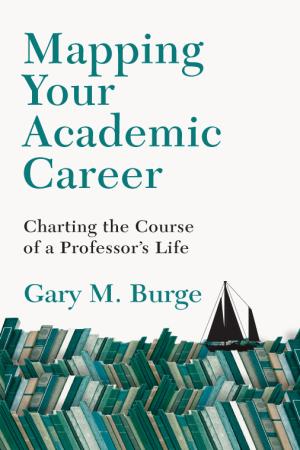
Click Here for Book Review Abstract: You're finishing your first year of teaching. It's been exciting and gratifying, but there've been some wobbly episodes too. How will you carve out a space to flourish? You're feeling secure in mid-career, with some accomplishments to be proud of. But what should success really look like? You're nearing the end of your career, and sometimes apprehensive about the blank slate of retirement. What might it look like to finish well? In Mapping Your Academic Career Gary Burge speaks from decades of teaching, writing and mentoring. Along the way he has experienced and observed the challenges and tensions, the successes and failures of the academic pilgrimage. Now, with discerning wisdom and apt examples, he hosts the conversation he wishes he'd had when he started out as a college professor, identifying three cohorts or stages in the academic career and exploring the challenges, pitfalls and triumphs of each. Wherever you are in your teaching life, this is a book that will reward reading, reflection and discussion. (From the Publisher)
Wabash Center Staff Contact
Sarah Farmer, Ph.D
Associate Director
Wabash Center
farmers@wabash.edu